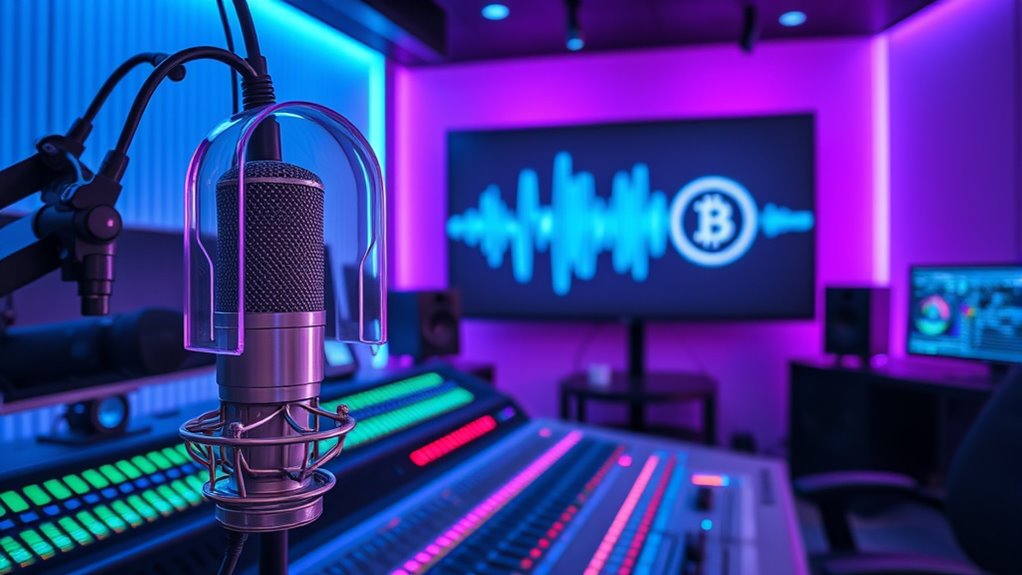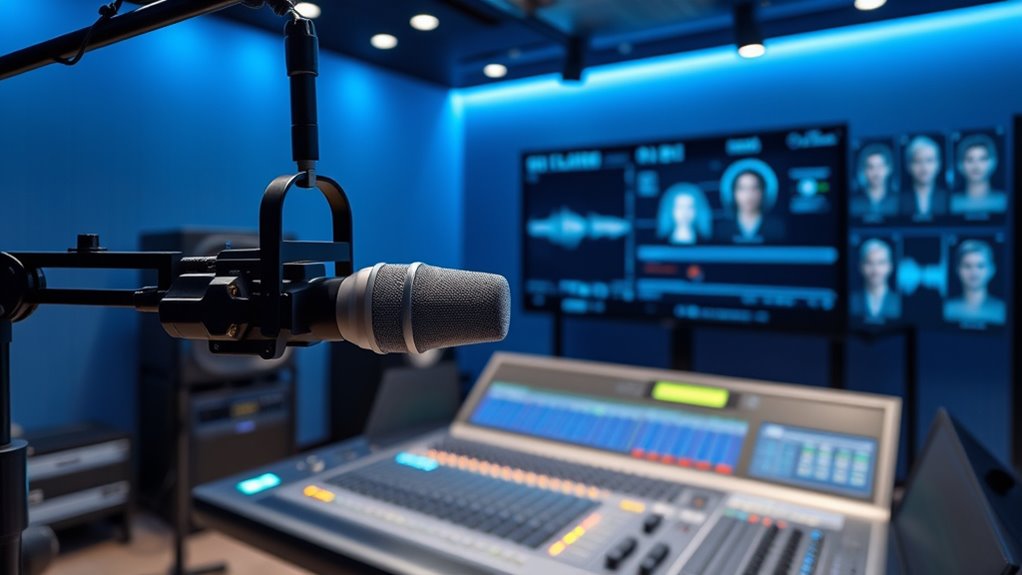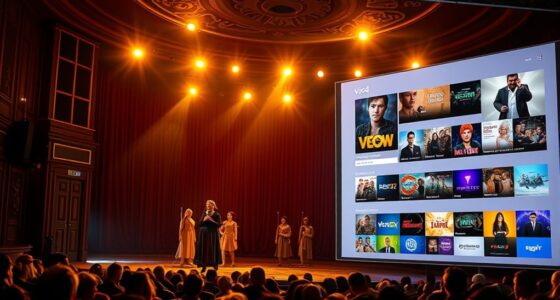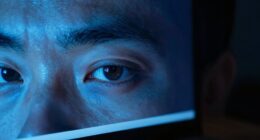AI voice cloning in dubbing offers exciting creative possibilities but raises important copyright and ethical concerns. You need to verify you have proper authorization, as reproducing voices without consent may infringe on performers’ rights and lead to legal issues. Licensing and clear ownership rights are essential to avoid disputes. If you want to understand how to navigate these challenges and protect both your projects and rights, keep exploring the details ahead.
Key Takeaways
- Reproducing voice clones without permission may infringe on copyright and personality rights of performers.
- Securing licenses and explicit consent is essential before using AI voice cloning in dubbing.
- Legal protections for AI-generated voices are evolving, requiring consultation with legal experts.
- Ethical use demands transparency, respect for voice owners, and consideration of emotional and personal significance.
- Misuse of voice cloning can lead to legal disputes, reputational damage, and ethical violations in dubbing projects.

As AI voice cloning technology becomes more sophisticated, it’s transforming how dubbing is done in the entertainment industry. This innovative approach allows creators to generate realistic voice replicas of actors, opening up new possibilities for localization, post-production, and even resurrecting voices of performers who are no longer available. However, with these advancements come significant legal implications and ethical considerations. You need to understand that reproducing someone’s voice without proper authorization can lead to copyright infringement and violate personality rights. If you’re considering using AI voice cloning for dubbing, it’s essential to clarify who owns the rights to the original voice and whether consent has been obtained. Failing to address these legal issues could result in lawsuits, financial penalties, and damage to your reputation. Copyright law traditionally protects the creative expression of authors, but when it comes to voice cloning, the legal landscape is still evolving. Courts are debating whether a voice is a form of intellectual property or a personality right that can’t be reproduced without permission. This ambiguity makes it necessary for you to consult legal experts and secure licenses before deploying AI-generated voices in commercial productions. Additionally, understanding the heartfelt messages associated with personal voice and identity can help inform ethical practices and ensure respectful use of this powerful technology. Ethical considerations also play a critical role in your decision-making process. Using AI to replicate an actor’s voice without their knowledge raises questions about authenticity and consent. You might argue that the technology offers creative opportunities, but it also risks undermining trust and respect for performers. For instance, if an actor’s voice is cloned posthumously or without their explicit approval, it could be viewed as exploitation or misrepresentation. Additionally, the potential for misuse—such as creating deepfakes or malicious content—adds another layer of ethical concern. You must weigh whether the benefits of AI voice cloning outweigh the moral obligations to protect performers’ rights and dignity. Transparency becomes key; informing actors and stakeholders about how their voices will be used and obtaining clear consent can help navigate these ethical waters.
Frequently Asked Questions
How Does AI Voice Cloning Impact Voice Actor Employment?
You might wonder how AI voice cloning affects voice actor employment. It can lead to voice actor replacement, especially for repetitive or small roles, reducing opportunities. However, it also challenges you to showcase your creative originality, making your performances unique and valuable. While AI can automate some tasks, your creativity and emotional depth remain essential, ensuring voice actors still play a crucial role in delivering authentic, compelling content.
What Legal Actions Can Voice Actors Take Against Unauthorized Cloning?
It’s ironic, isn’t it? You’d think voice actors could just sing the legal blues and get justice. In reality, you can pursue legal recourse against unauthorized cloning, relying on copyright laws and contractual enforcement. You should document unauthorized use, consult legal experts, and possibly file copyright infringement claims. Taking these steps helps protect your voice and rights, ensuring you don’t become a forgotten echo in a world of clones.
Can AI Clones Be Used for Commercial Purposes Without Consent?
You might wonder if AI clones can be used commercially without consent. The answer is no; unauthorized use of someone’s voice for commercial purposes often constitutes copyright infringement. Using AI clones without permission can lead to legal actions against you, including lawsuits and damages. Always seek consent and respect copyright laws to avoid legal trouble, ensuring you’re not infringing on voice actors’ rights or engaging in unauthorized use.
How Do Licensing Agreements Cover Ai-Generated Voice Content?
Imagine a key unlocking a treasure chest—licensing agreements do the same for AI-generated voice content. They define how your voice can be used, stored, and shared, acting as a shield under copyright law. Voice licensing guarantees you retain control, preventing unauthorized use. When you understand these agreements, you safeguard your voice’s value and prevent legal conflicts, like a guardian protecting a precious gem from being misused or stolen.
What Are the Ethical Considerations in AI Voice Cloning and Copyright?
You should consider the ethical issues surrounding AI voice cloning and copyright, like authenticity concerns and consent dilemmas. When you use cloned voices, there’s a risk of misleading audiences or infringing on someone’s rights without permission. You need to guarantee transparency about voice origins and get proper consent, respecting creators’ rights. Addressing these concerns helps maintain trust and upholds ethical standards in voice technology.
Conclusion
As you explore AI voice cloning in dubbing, remember that over 60% of consumers prefer content with authentic voices, highlighting its potential. While this technology offers exciting possibilities, it also raises important copyright questions about voice ownership and rights. You should stay informed about evolving laws to navigate this landscape responsibly. Embracing AI’s benefits while respecting creators’ rights will help shape a fair future for dubbing and voice technology.









